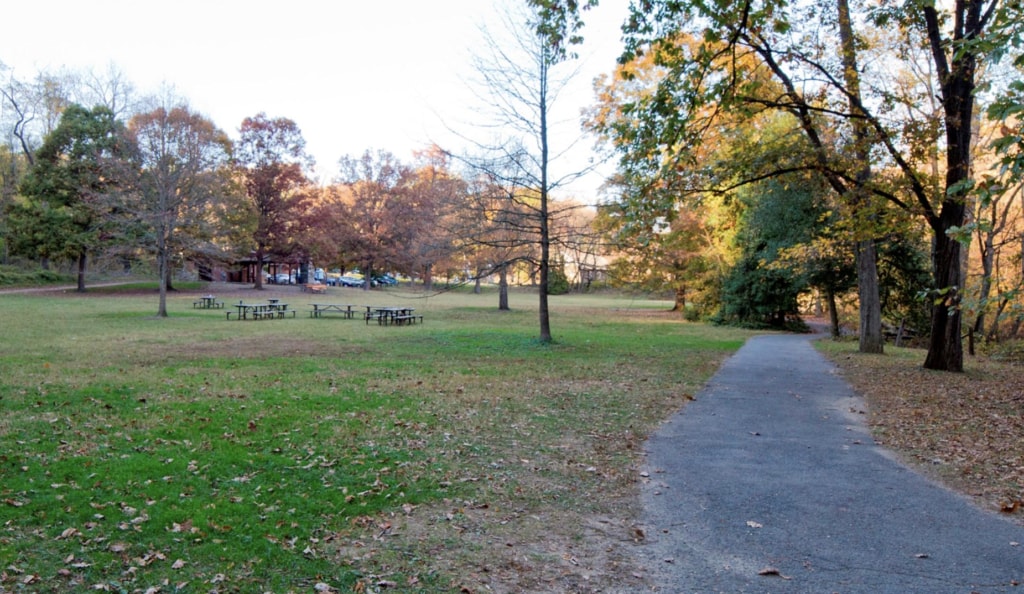D.C. park, trail drop name of commissioner who displaced Black families
Melvin Hazen advocated to destroy the Black neighborhood of Reno City to develop what is now Fort Reno Park.
A nature park and trail in the northwest section of Washington D.C. will no longer bear the name of Melvin Hazen, a former city commissioner who pushed for the destruction of a Black neighborhood to clear space for park development, the National Park Service has announced.
As reported by The Washington Post, Hazen became a surveyor of D.C.’s surrounding woodlands in 1908, later being appointed to the city’s Board of Commissioners. In ensuing years, he urged state officials to demolish homes in a Black neighborhood.
“Melvin Hazen was a leading force in the systematic dismantling of Reno City in Northwest Washington during the 1930s and 1940s. As president of the District of Columbia Board of Commissioners from 1933 to 1941, Melvin Hazen was instrumental in the displacement of Black residents from this area to create what is now Fort Reno Park,” the National Park Service wrote in a press release, according to DCist.
The Post reports that Reservation 630, which is the woodland’s number in the park service system, will be the park’s new title for now as only Congress has authority to rename it, according to the service’s statement.
The National Park service has removed the name of a Washington D.C. surveyor from a park. The surveyor, Melvin Hazen, systematically displaced Black communities in the early 20th century. (Photo Credit: National Park Service, K. Cain)
An earlier report from the Post recounts Hazen’s statements to U.S. senators during a hearing in 1926 in which Hazen described Reno City as an “ill-devised, ill-shaped subdivision that you cannot do anything with unless you just wipe it off.”
Hazen reportedly added that the neighborhood was occupied “mostly by colored folks” who he did “not particularly” consult about his demolition plans.
In 2020, a local neighborhood commission amplified calls to remove Hazen’s name by passing a resolution urging action from the National Park Service. Eleanor Holmes Norton, who represents D.C. as a delegate in Congress amplified that request last year, according to DCist.
“As the President of the D.C. Board of Commissioners, Hazen chose to wield his power by promoting segregation, prioritizing all-white communities and marginalizing African-American residents,” Norton said in a statement to DCist.
“Labeling the majority African-American community in Reno City a ‘blight’ that was out of ‘harmony with the general plan for the District,’ Hazen orchestrated the demolition of this neighborhood, pushing African-American families out of the homes they owned in the District. The removal of his name from Rock Creek Park is long overdue,” she added.
The Post reported that D.C. historian Neil Flanagan provided much of the information used by advocates pushing to remove Hazen’s name. In 2017, Flanagan published an article in the Washington City Paper about the once-thriving Black community that was displaced for park development.
Flanagan told DCist: “It’s a story that explains a lot about why D.C. looks the way it does. Why Black people live on one side of Rock Creek Park and why white people live on the other.”
In an email to the Post, Flanagan wrote that in addition to removing Hazen’s name from the park, work must continue with “a systematic, historian-led analysis of the city’s namesakes” to discover other city leaders who may have facilitated the destruction of Reno City.
The name change for Reservation 630 l is among several efforts in the D.C. region to take down or alter landmarks memorializing Confederates and segregationists, the Post reports.
In 2020, local residents voted to remove a marker honoring former Nevada senator Francis G. Newlands, who pushed to abolish voting rights for African American men and restrict U.S. immigration to whites only . In January of this year, Maryland senators introduced a bill to remove Newland’s name from a fountain near the D.C.-Maryland border.
TheGrio is FREE on your TV via Apple TV, Amazon Fire, Roku and Android TV. Also, please download theGrio mobile apps today!
The post D.C. park, trail drop name of commissioner who displaced Black families appeared first on TheGrio.

